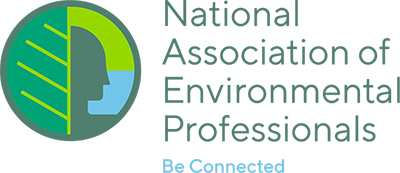
Managing Risks and Liabilities at PFAS Contaminated Sites
Friday, August 28
11:15–12:00 PM PT | 2:15–3:00 PM ET
About the Session
Managing Risks and Liabilities at PFAS Contaminated SitesThe recognition of emerging contaminants such as per- and poly-fluoroalky substances (PFAS) present unique challenges to making informed decisions. In a time of such regulatory uncertainty and rapidly evolving science regarding the risk of PFAS constituents, industry and decision makers are looking for effective strategies to determine the potential liabilities and to develop effective and pragmatic solutions. Critical to making informed decisions, is the need to understand the issue from several perspectives, and consider not only the toxicology of PFAS isomers, but also the release mechanisms, site characteristics (i.e., topography and geochemistry), and potential risk exposure pathways through which PFAS may transported from operations through the environment. The risks to human health and the environment are still the subject of much research, and only limited information are available on the toxicity of most PFAS compounds (including short-chained compounds, which are common substitutes). To exacerbate these challenges, the widespread media coverage, high level of public interest and elevated level of regulatory scrutiny means that the timeframes are compressed and a flexible approach is required to inform organizations in the decision-making process.Presently, the options to effectively treat wastewater or groundwater for PFAS are limited. While treatment options are emerging, technologies capable of attaining the very low groundwater criteria being adopted by many regulatory jurisdictions for large volumes of impacted groundwater are very limited. Further, the persistence of PFAS and the high solubility mean that even minor future PFAS releases at the site could require significant treatment effort.This presentation will provide an overview of the multi-disciplinary considerations, including source identification, PFAS toxicity, investigation, fate and transport, human health and ecological risk assessment, regulatory challenges, and stakeholder/community engagement. Risk mitigation measures will also be discussed, including opportunities for product substitution, development of best management plans to control releases, development of an environmental management plan to protect receptors, targeted treatment and remediation, and stakeholder engagement.
Track:
About the Speaker
 |
Lori Coolidge
Geologist
GHD Services
Lori Coolidge, PG, is a Professional Geologist at GHD with 12 years of progressive experience in the field of geology, with experience in geotechnical investigations and environmental assessments. Since joining GHD in 2007, Ms. Coolidge has performed work related to the identification of geologic hazards, due diligence environmental assessments, and contamination assessments. Her project experience background includes investigation/remediation at sites impacted by industrial contaminants and petroleum hydrocarbons, as well as performing investigations for the presence of sinkhole activity, slope stability and mine subsidence. Ms. Anderson has also provided support for geologic evaluations in Tennessee, Alabama, Pennsylvania, Virginia and Kentucky.
|
Back to Top
|



